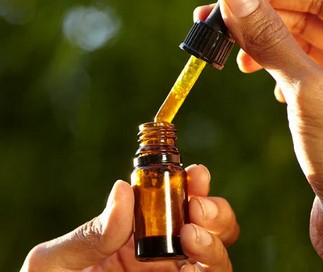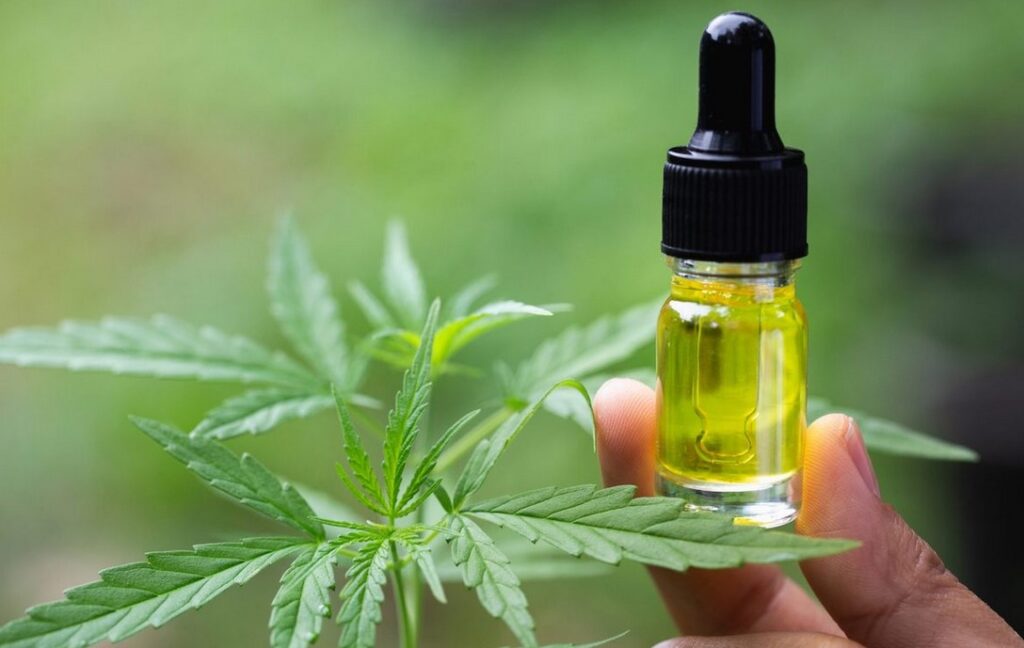CBD has become one of the most popular treatments for a variety of health problems, thanks to its outstanding advantages. These conditions include anxiety, sadness, sleeplessness, discomfort, and a slew of other issues. Is it necessary to use CBD oil for hernia pain? Is it advised?
Currently, there isn’t much research on CBD oil for hernia pain. However, there is a lot of evidence suggesting that CBD can help with chronic pain, as reported by Frontiers in Pharmacology. CBD can provide an option for anybody who suffers from persistent pain and uses prescription medications like opioids, which may be deadly and have unpleasant side effects.
CBD is considered a more natural and less harmful option to prescription painkillers by many people. CBD, according to the World Health Organization (WHO), is safe, well-tolerated, and not linked to any significant public health hazards. That being said, here’s what we think about using CBD oil for hernias:
What Is Hernia Pain?

When an organ protrudes through a hole in the tissue or muscle that prevents it from moving, it is referred to as a hernia. An example is when the intestines burst out of a weak spot in the abdominal wall. Hernias occur most often in the region between the hips and chest, but they can also appear in the groin and upper thigh areas.
The most typical sign of a hernia is an area of swelling or lumpiness in the afflicted region. Slight discomfort and suffering are also possible.
Patients with abdominal hernias frequently describe mild discomfort, pressure, or an aching sensation at the site of the hernia. Any type of movement that puts strain on the abdomen, such as jogging, excessive lifting, hacking, or pushing while going to the bathroom, causes pain. The discomfort can be sharp and bad; standing up may make it worse.
Some hernias are not dangerous, but they will not heal on their own. A hernia can become chronic if it is not treated appropriately, resulting in symptoms that may severely curtail your daily activities.
Hernia Treatment Options
Hernias are generally treated by surgery. The size and type of hernia, as well as the patient’s overall health, will determine the treatment choices. A doctor may initially recommend monitoring the condition for changes. This might include making changes to one’s activity level, habits, or diet. Medications can sometimes assist with reducing hiatal hernia symptoms.
If a hernia doesn’t improve, surgery may be necessary. Laparoscopic or open repair are the two types of surgical treatment available. The first is less invasive, with a physician or surgeon making little incisions in the afflicted region to mend the hernia. The latter necessitates a larger incision to mend the hernia.
Hernia surgery is generally painless, but the discomfort and swelling after a hernia repair are usually treated with non-steroidal anti-inflammatory drugs (NSAIDs) such as naproxen or ibuprofen. A steroidal cortisone injection may be suggested if the symptoms persist.
CBD Oil and Hernia Pain

CBD has had a big recent surge in popularity, and with that, the number of CBD-rich products available on the market has increased substantially. As we continue to learn more about CBD’s therapeutic advantages, such as its pain-relieving effects, it will likely become even more popular.
The endocannabinoid system (ECS) is a cell-signaling mechanism found in everyone. This is significant because CBD has been shown to interfere with a key component of the ECS – receptors in the immune system and brain.
Receptors are tiny proteins that are attached to the cells. They receive chemical signals from different stimuli and help the cells to respond. This response creates pain-relieving and anti-inflammatory effects that help with pain management.
CBD’s anti-inflammatory effects suggest that it may be useful in treating hernias, which is why it has been used to treat other types of inflammation. A 2008 study published by Ethan B. Russo found that our cannabinoids might help manage difficult-to-treat pain.
CBD Oil as an Alternative to Opioids
With the rampant misuse and abuse of prescription drugs and opioids, patients and doctors are seeking for alternative therapies to treat chronic and acute pain. CBD may be a potential answer, delivering pain relief without the risk of addiction or overdose, according to medical experts and researchers.
Cannabidiol (CBD) is a cannabinoid present in cannabis plants. CBD, unlike THC, is non-intoxicating and non-addictive.
CBD reduces the rate of naturally produced pain relievers, such as anandamide, being absorbed by binding to CB1 and CB2 receptors in the ECS (which we previously discussed). The system includes CB1 and CB2 receptors, and CBD activates these receptors, cutting down on the amount of endocannabinoids that are absorbed.
This is crucial because, unlike opioids, CBD does not cause the body to become reliant on a feeling. CBD, instead of releasing dopamine like other opiates do, extends the duration of naturally produced pain relievers.
It’s not unusual for people to become tolerant to cannabidiol, so they don’t have to increase the dosage over time in order to maintain pain-relieving effects.
Final Thoughts
Individuals should make their own decisions about whether or not to try CBD oil for hernialgia pain. That said, CBD is thought to be a considerably safer option than opioids and other painkillers. There have been no reported cases of persons overdosing on CBD thus far. CBD is typically well-tolerated, safe, and non-addictive, so it’s an excellent choice for individuals suffering from pain.
While there is no scientific evidence to suggest that CBD oil helps with hernialgia pain, studies have shown that CBD has the potential to help other sorts of pain. If CBD can be used to manage general discomfort, it has a good chance of working on hernia discomfort as well.
